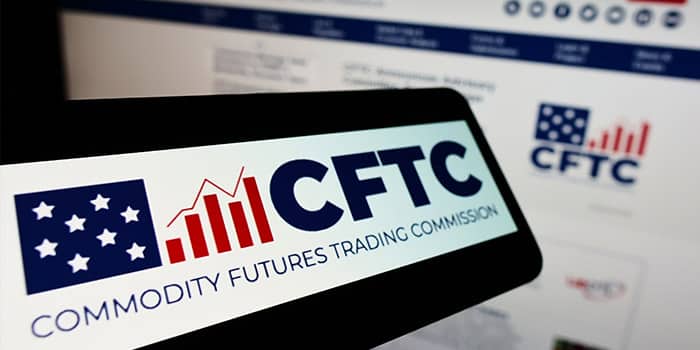- Casino
- By State
- Alabama
- Alaska
- Arizona
- Arkansas
- California
- Colorado
- Connecticut
- Delaware
- Georgia
- Florida
- Hawaii
- Idaho
- Illinois
- Indiana
- Iowa
- Kansas
- Kentucky
- Louisiana
- Maine
- Massachusetts
- Maryland
- Michigan
- Minnesota
- Mississippi
- Missouri
- Montana
- Nebraska
- Nevada
- New Hampshire
- New Jersey
- New Mexico
- New York
- North Carolina
- North Dakota
- Ohio
- Oklahoma
- Oregon
- Pennsylvania
- Rhode Island
- South Carolina
- South Dakota
- Tennessee
- Texas
- Utah
- Vermont
- Virginia
- Washington
- West Virginia
- Wisconsin
- Wyoming
- By State
- Slots
- Poker
- Sports
- Esports
Fact-checked by Velimir Velichkov
Lawsuit Alleging Price-Fixing Picks up Speed in Nevada
The lawsuit names Wynn Resorts, Caesars Entertainment and Cendyn defendants

A lawsuit over alleged price-fixing among Las Vegas operators picked up speed last week after a court decision.
Pricing Algorithms Pose Dangers to the Free Market, Customers
Unhappy customers filed the lawsuit last year against a couple of recognizable gaming and hospitality operators, as well as one software company. The plaintiffs accused Wynn Resorts, Caesars Entertainment and Cendyn, a software development company, of using private information for recommendations on hotel room prices. The lawsuit gained significant traction Thursday after a decision of the US Justice Department that sided with the plaintiffs in the lawsuit.
Previously, a lower court dismissed the price-fixing lawsuit. However, the 9th US Circuit Court of Appeals concluded that the lower court’s decision should not be upheld, citing legal errors, a report released by Reuters reveals. At the same time, in an amicus brief, the court acknowledged that the use of pricing algorithms by competitor companies represents “new dangers” to the customers and the free market.
Agreement to Use Pricing Algorithms Between Competitors Is Illegal
The outcome of this legal battle is significantly important as it may play a key role in similar future lawsuits against suspected price-fixing. In the recently released brief, the court acknowledged the dangers of using pricing algorithms, pointed out that such solutions “can increase the means and opportunities for collusion among competitors.”
Recognized as a primary source for competition regulation, the Sherman Act is the main law that governs trade and outlines which actions are permitted and forbidden. As an example, the list of violations includes price-fixing, bid rigging and joint boycotts, among other unfair practices.
“The United States enforces Section 1 of the Sherman Act, 15 U.S.C. § 1, and has a strong interest in its correct application. The joint use of pricing algorithms by competitors presents new dangers to the free market and, in some circumstances, violates Section 1,“
reads the 9th US Circuit Court of Appeals’ brief
The lawsuit against Cendyn, Caesars and Wynn was dismissed after a judge stated that the plaintiffs failed to prove that the accused operators simultaneously and in coordination used Cendyn’s software. At the same time, the judge pointed to the fact that it wasn’t mandatory for the operators to use the suggested prices.
However, in the recent brief, the higher court explained: “Although the district court identified several reasons for finding such an agreement implausible, the court mentioned numerous times that the hotels were not required to follow Cendyn’s prices. That condition is not necessary for illegality, as an agreement among competitors to use certain pricing algorithms to generate default or starting-point prices is per se illegal even if there is no further agreement on final prices.”
Recently, a similar class action lawsuit against Atlantic City hotel and casino operators was dismissed by a judge. The price-fixing legal challenge named MGM and Caesars defendants in New Jersey. Ultimately, the lawsuit was thrown out after a judge concluded that there was insufficient evidence to support the plaintiffs’ claims.
Jerome brings a wealth of journalistic experience within the iGaming sector. His interest in the industry began after graduating from college, where he regularly participated in local poker tournaments. This exposure led him to the growing popularity of online poker and casino rooms. Jerome now channels all the knowledge he's accrued to fuel his passion for journalism, providing our team with the latest scoops online.
Next Article


Legal
October 28, 2024
Court Rejects Lawsuit Against Resorts World Las Vegas, Former Exec
Must Read
More Articles




Casino
April 18, 2025
Florida HB Seeking to Upgrade Illegal Gambling Punishments

Legal
April 17, 2025
Appeal to Keep Evolution’s Accuser Anonymous Denied

Lottery
April 17, 2025
CTLC Says Its Members Didn’t Violate the Texas Law













